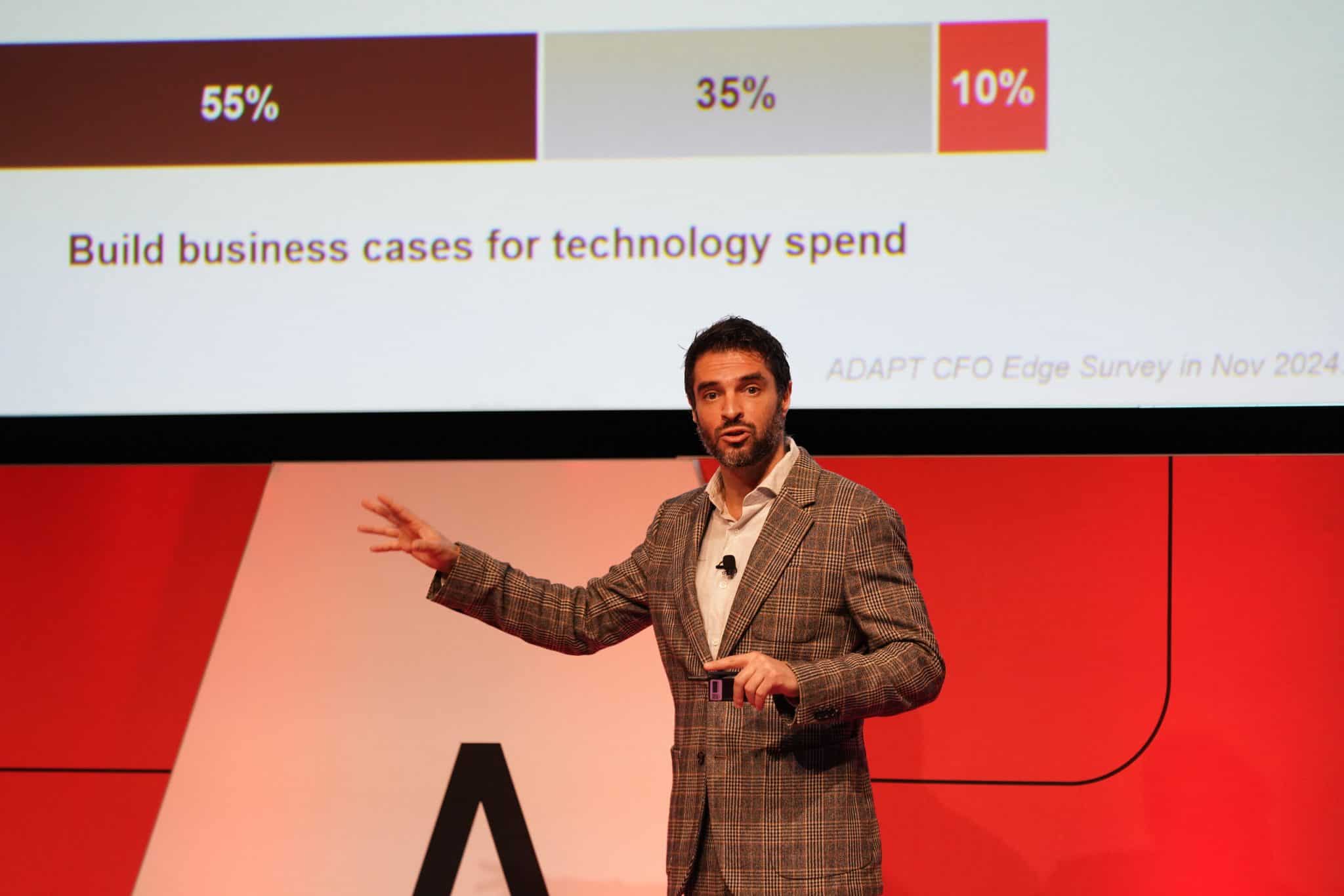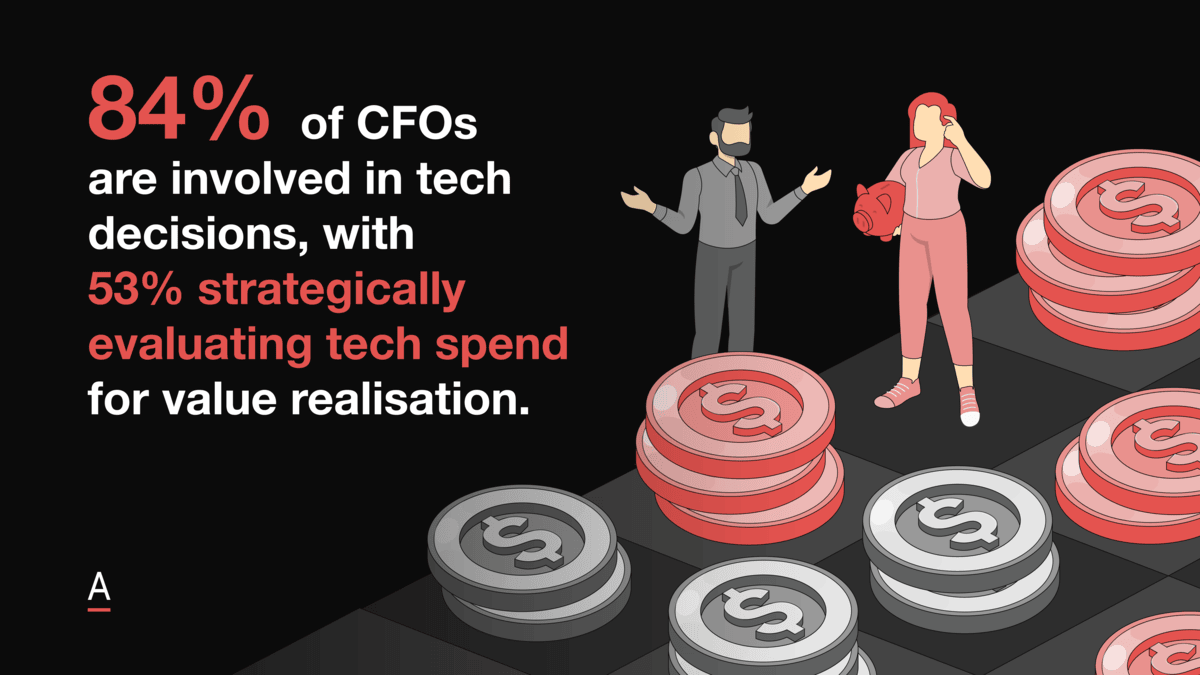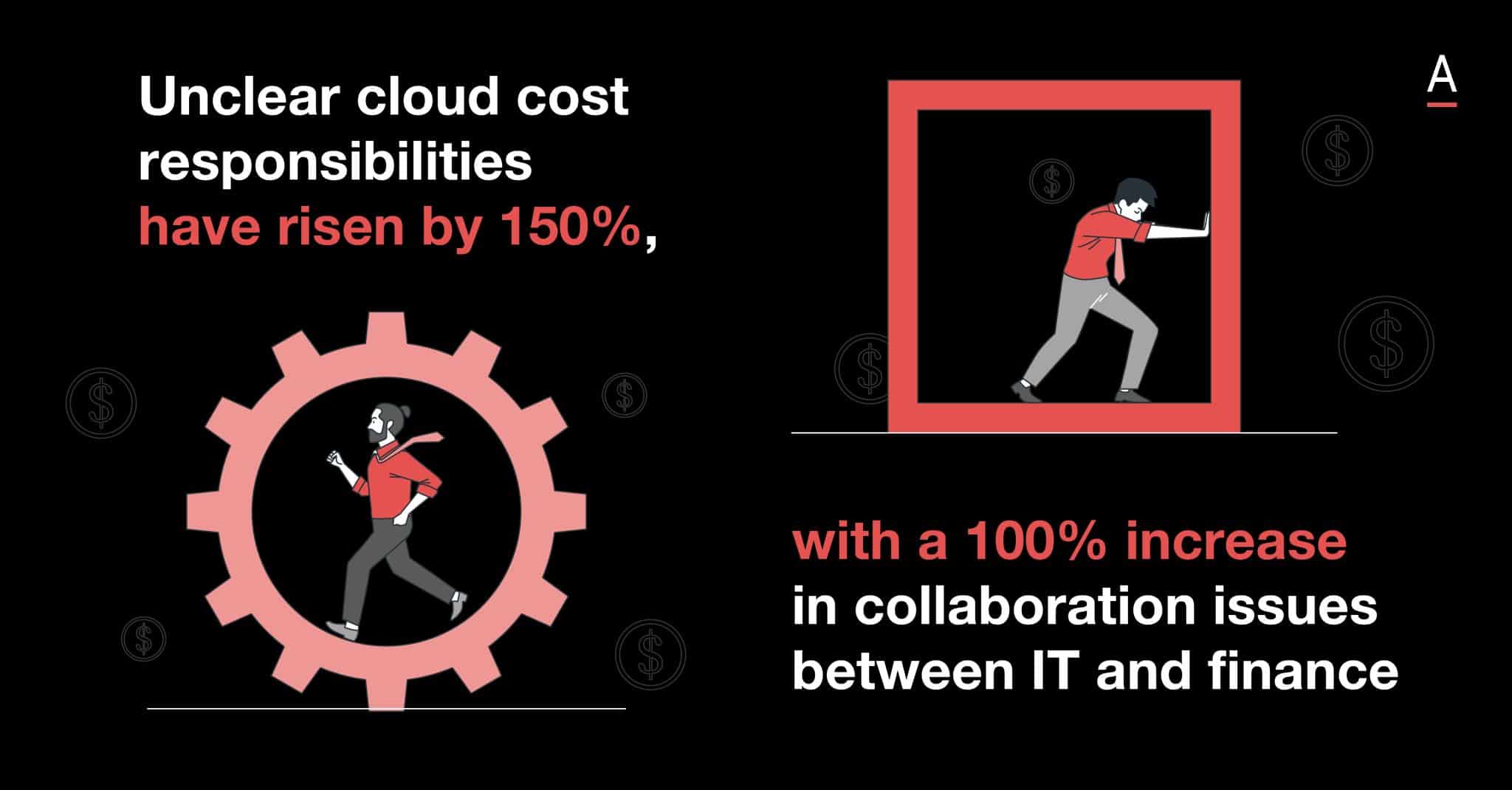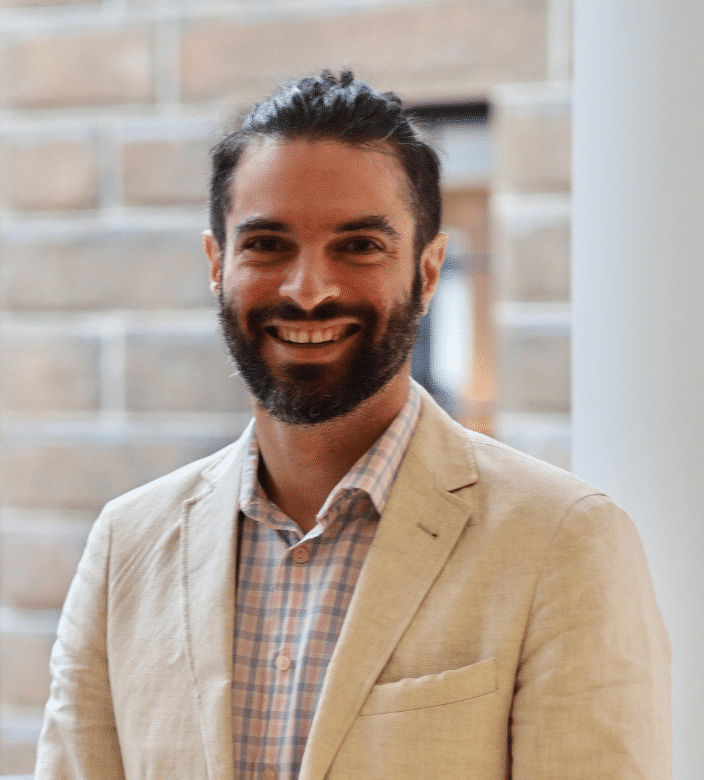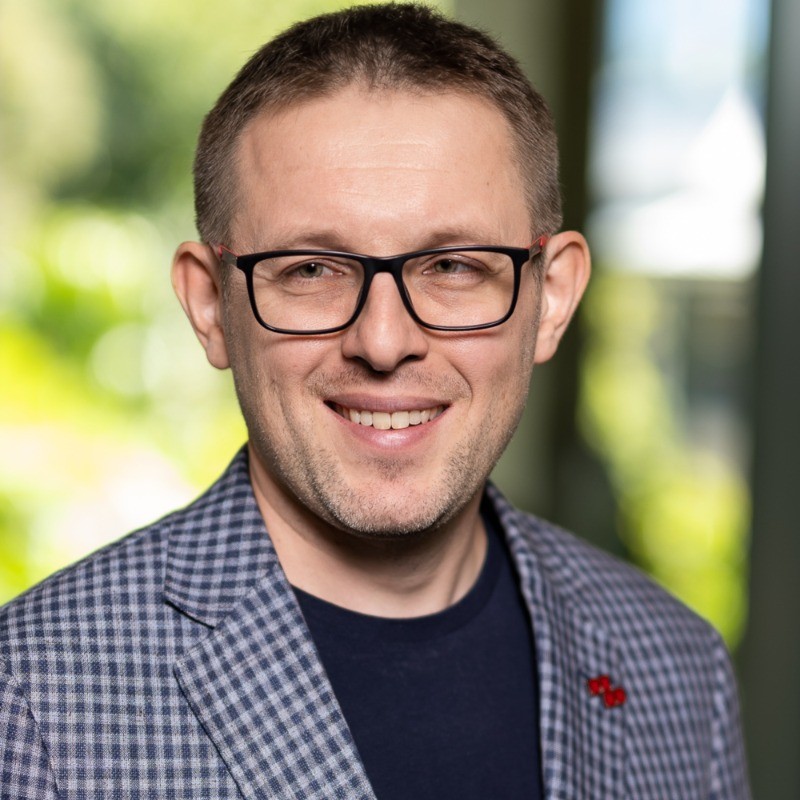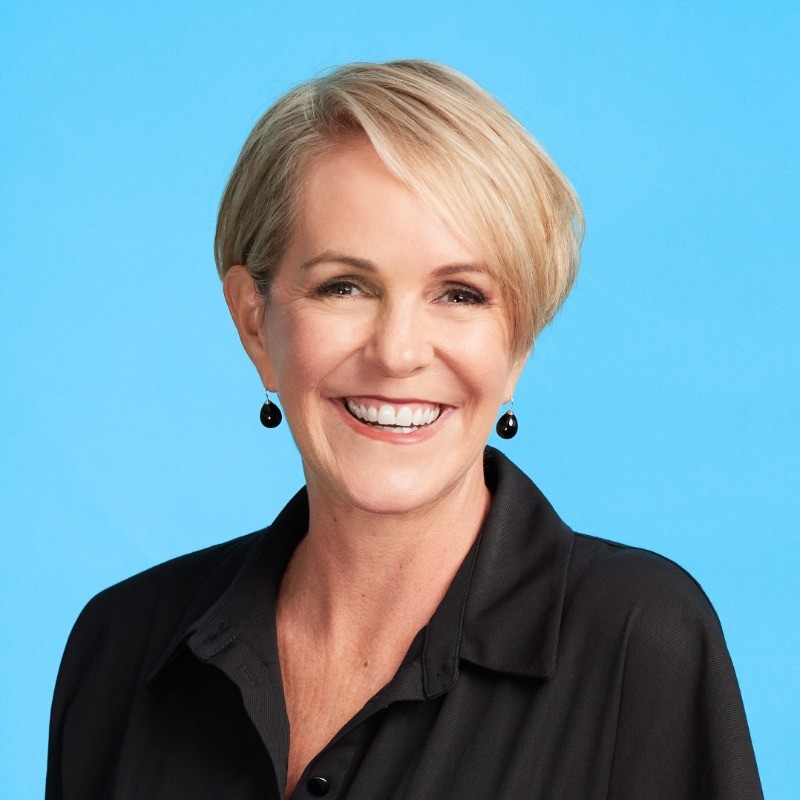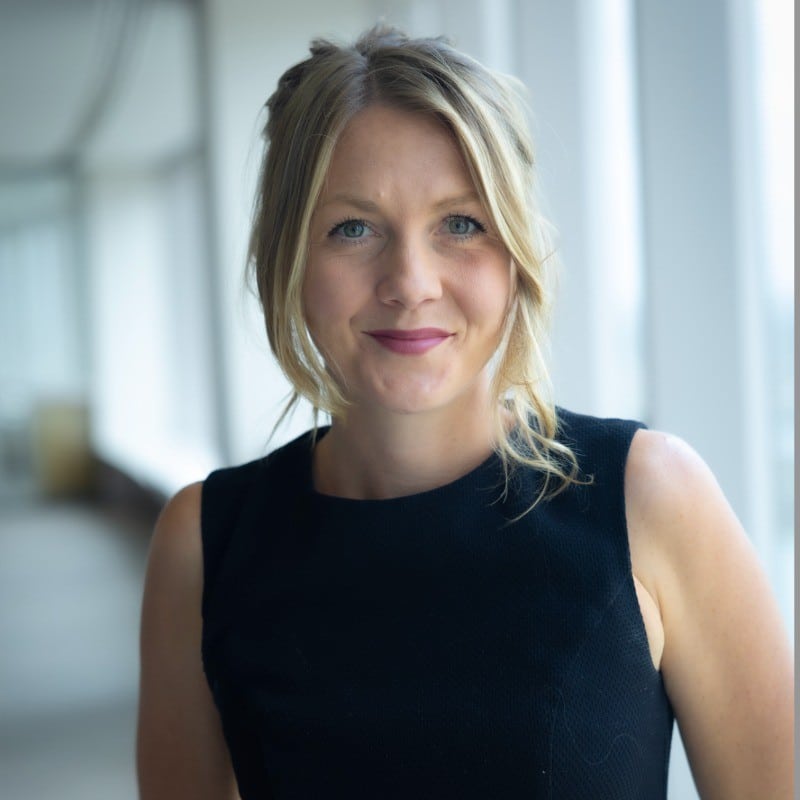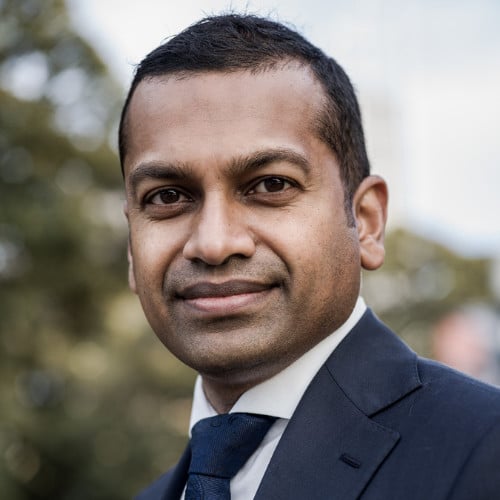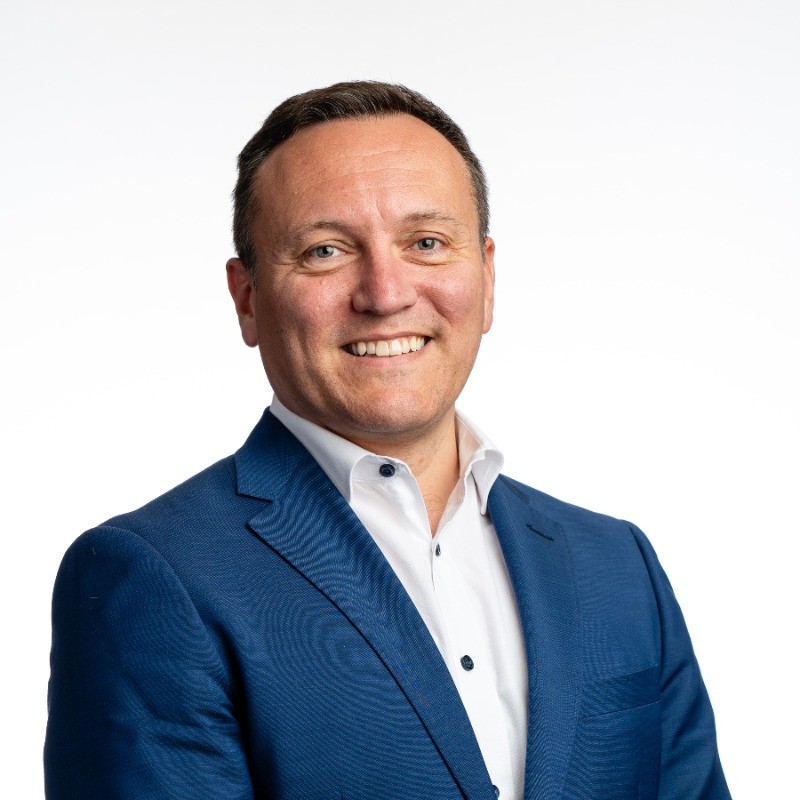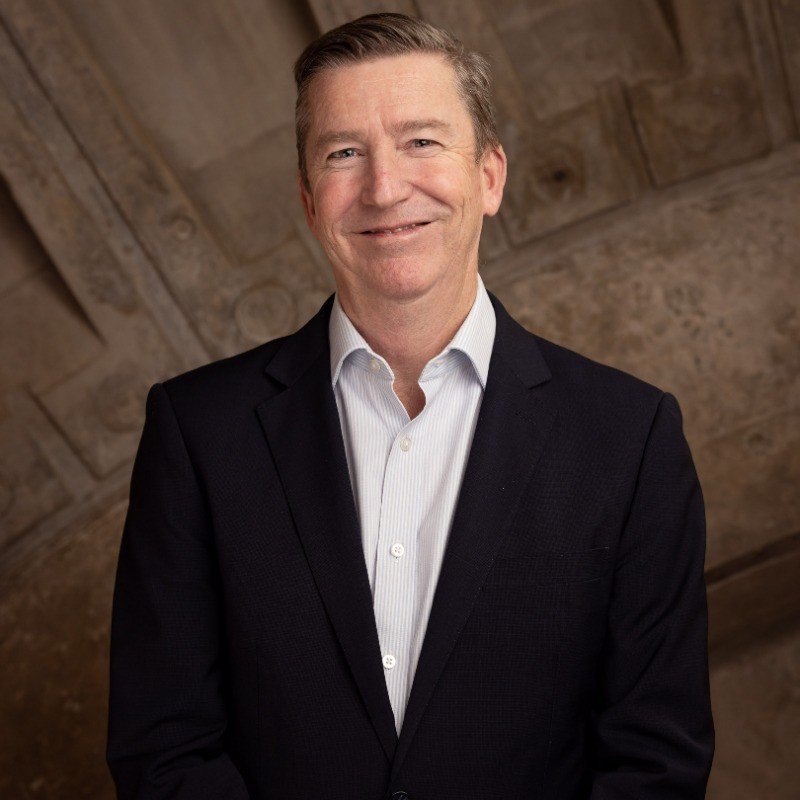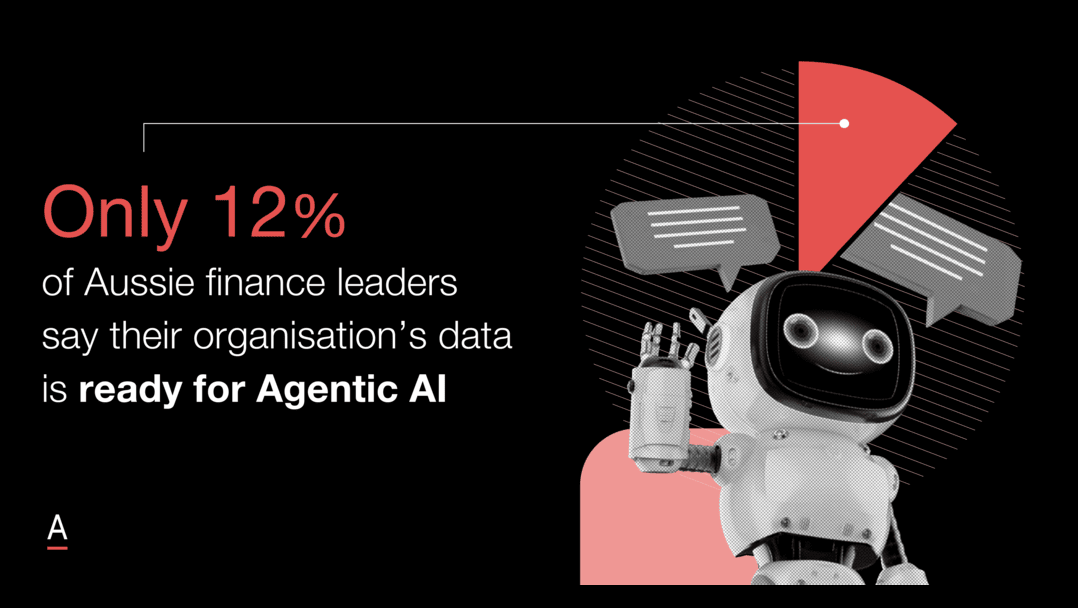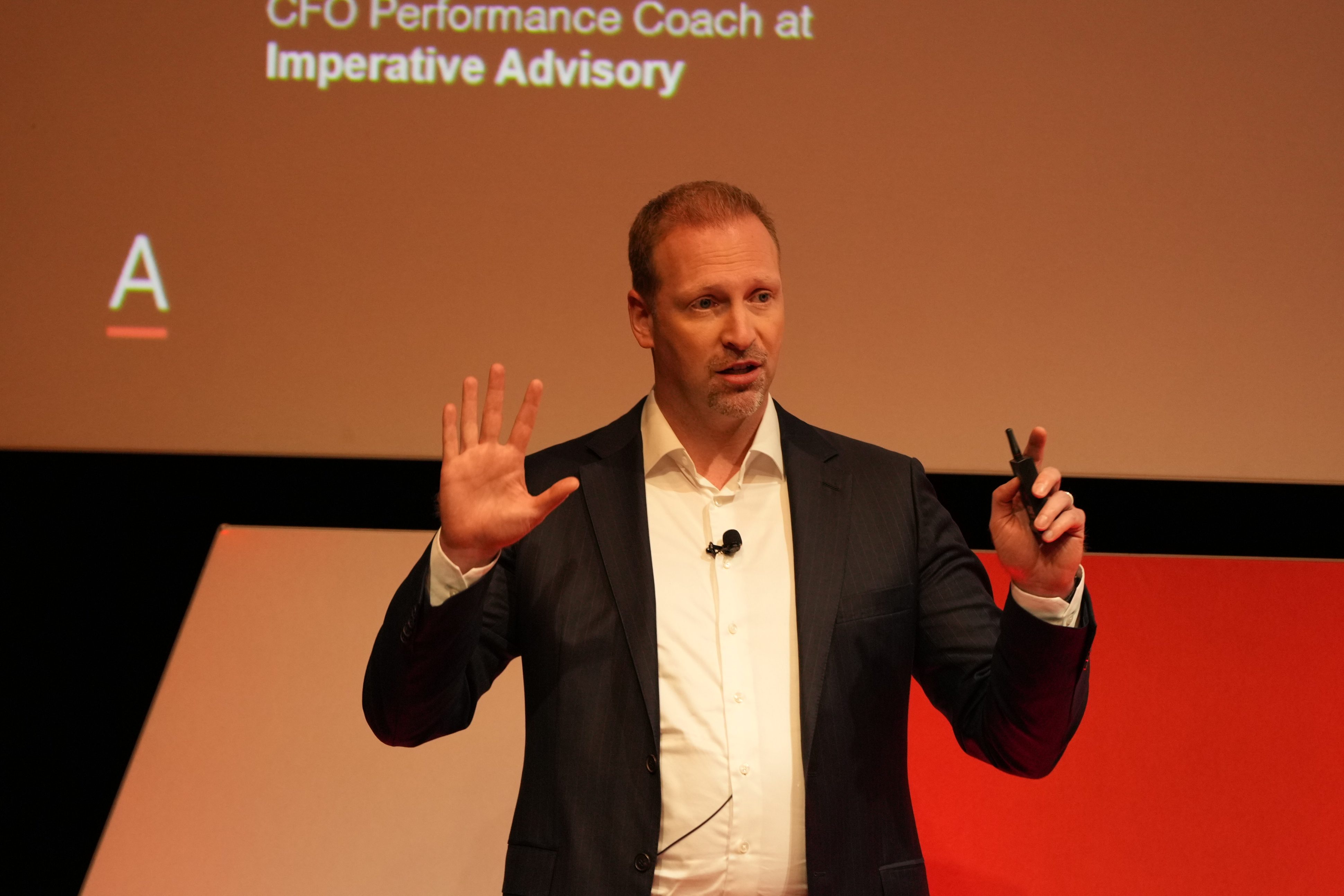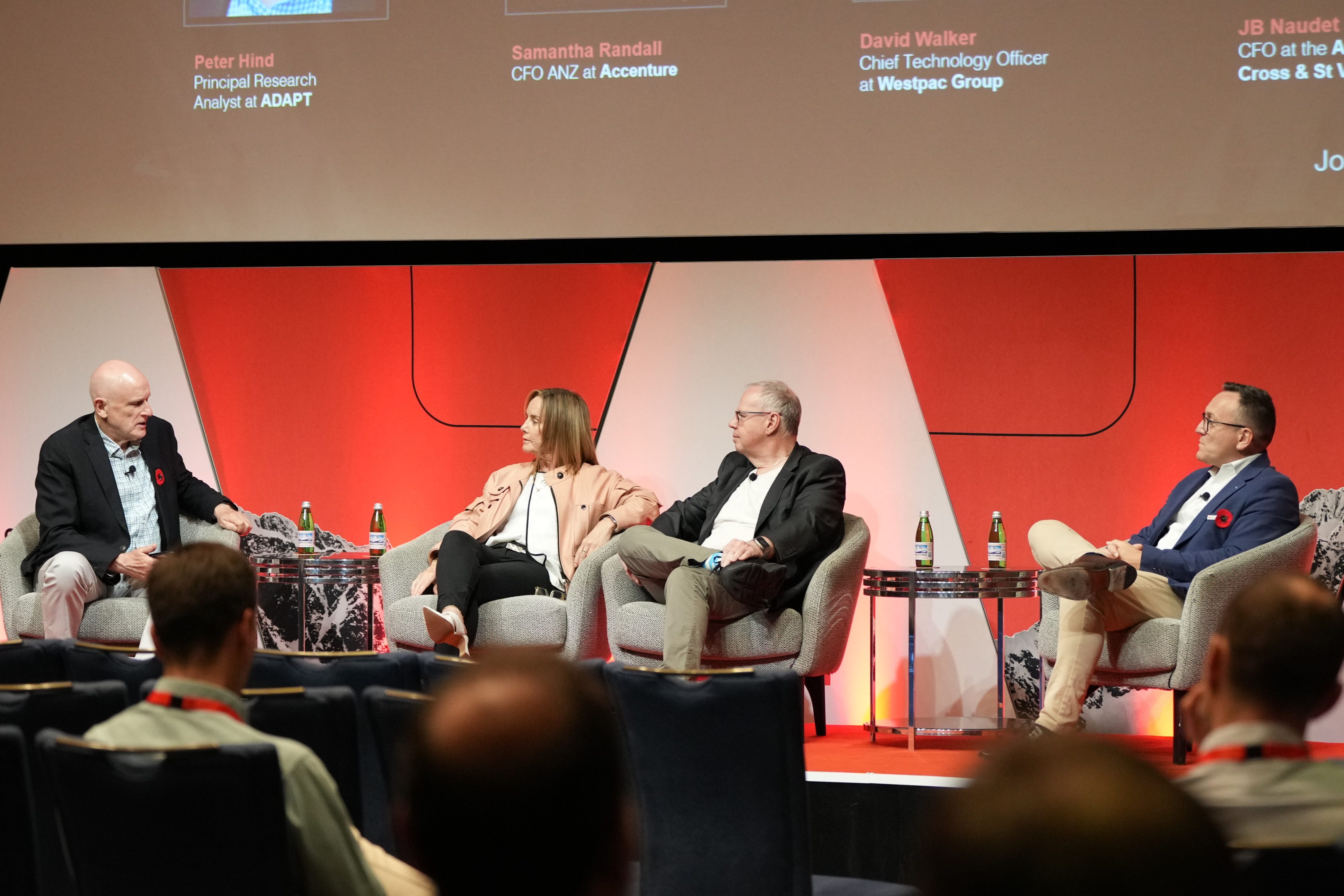80% of Aussie finance leaders struggle to assess ROI on tech investments
Australia's CFOs navigate ROI on tech, AI innovation, and data governance. ADAPT's CFO Edge explored strategies to modernise, optimise, and drive impact.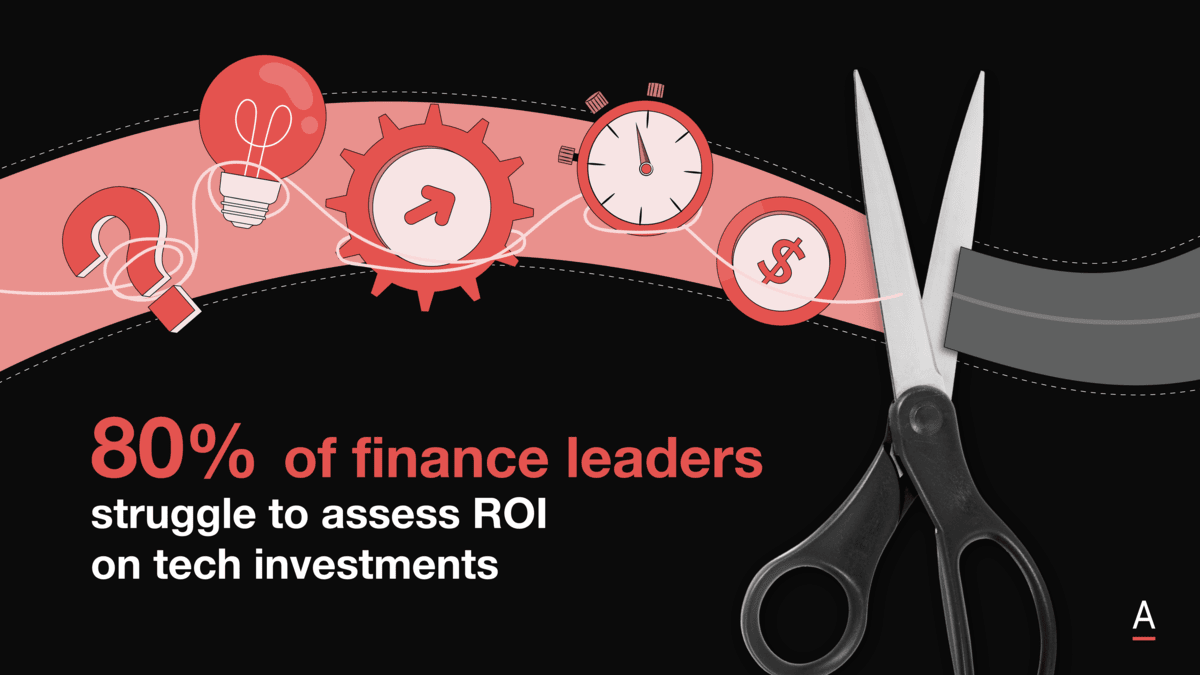
Australia’s CFOs navigate ROI on tech, AI innovation, and data governance. ADAPT’s CFO Edge explored strategies to modernise, optimise, and drive impact.
The modern CFO faces the challenge of balancing resilience, efficiency, and growth while managing costs amid rapid technological advancements and economic pressures.
Technology now underpins strategic decision-making, with most CFOs progressing along their digital and AI roadmaps while navigating IT investments and rethinking operating models.
However, 80% of finance leaders struggle to assess ROI on tech investments, with declining cost visibility and underutilised resources compounding these efforts.
Cloud cost accountability challenges have risen by 150%, with unclear responsibilities creating further complexities for finance teams and increasing friction with IT.
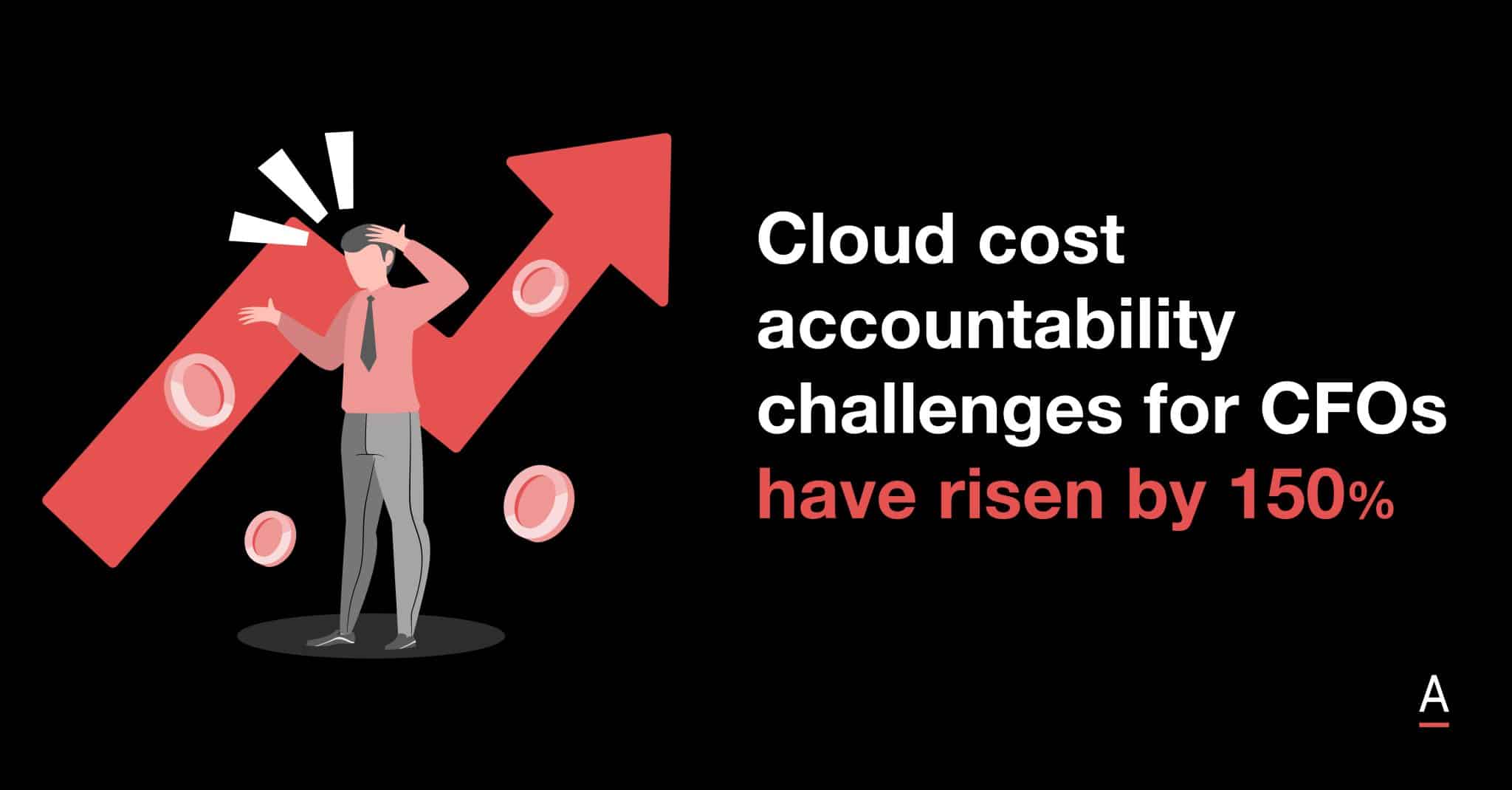
CFO Edge’s delegation, representing over a quarter of Australia’s GDP, highlights the collective impact CFOs can have on national economic health.
Top-performing organisations succeed by modernising platforms, fostering a tech-savvy workforce, and creating a data-driven culture that ensures actionable insights.
Yet, 79% of CFOs report challenges accessing reliable data for scenario modelling and risk mitigation, leaving them vulnerable to external disruptions.
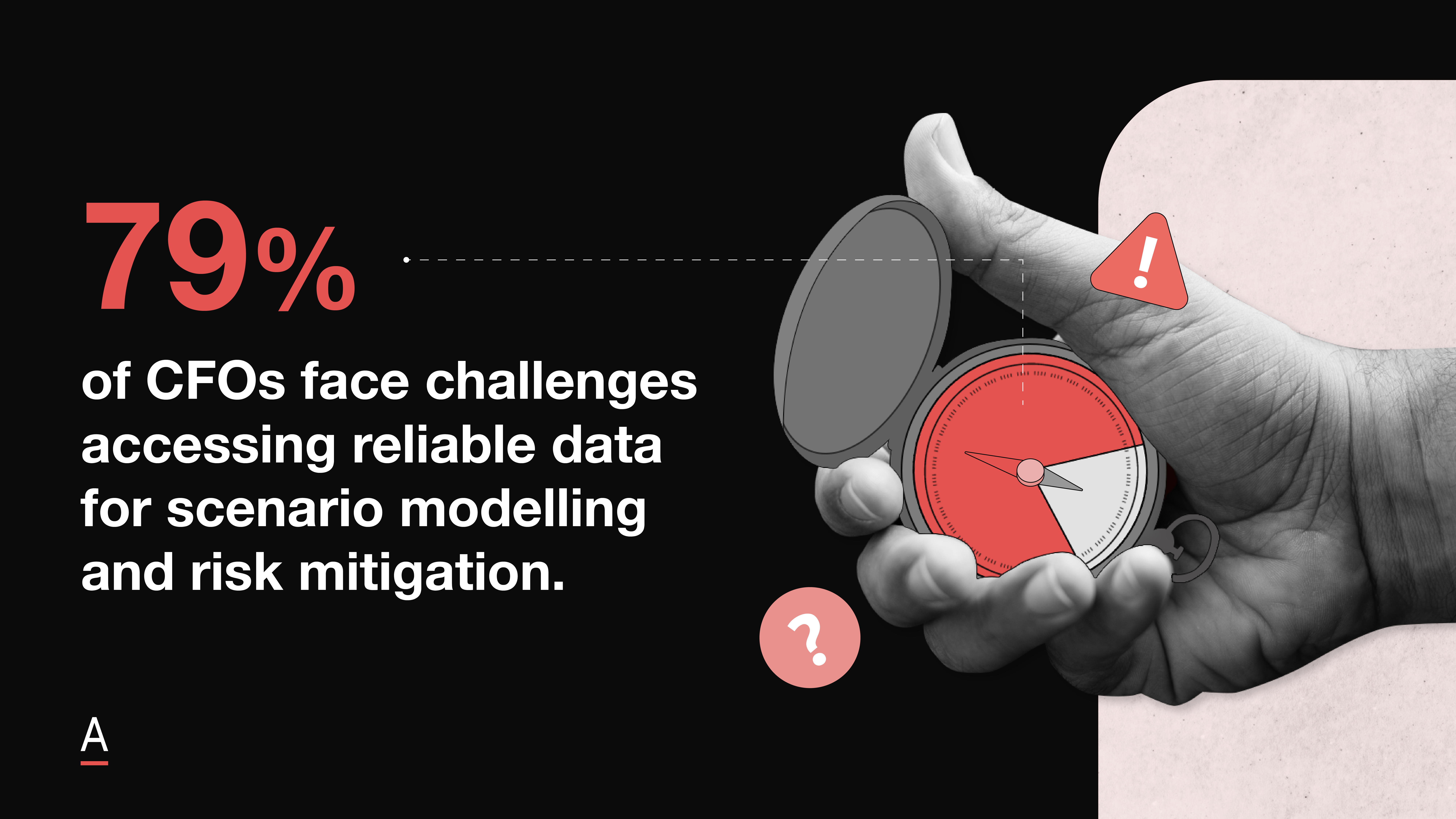
Amid AI-driven transformation, sensible, forward-thinking modernisation is crucial to maximise resources and impact.
CFO Edge provides a critical forum for finance leaders to share strategies and navigate this evolving landscape effectively.
1. CFOs face 47% decline in tracking tech value, with cost visibility down by 30%
Presented by: Gabby Fredkin – Head of Analytics & Insights at ADAPT
2. The AI revolution in finance: CFOs and their digital minions
Presented by: Prof. Marek Kowalkiewicz, Chair in Digital Economy at QUT Business School
Prof. Marek Kowalkiewicz delved into the transformative impact of algorithms and AI on modern workplaces, highlighting their potential to enhance productivity and decision-making.
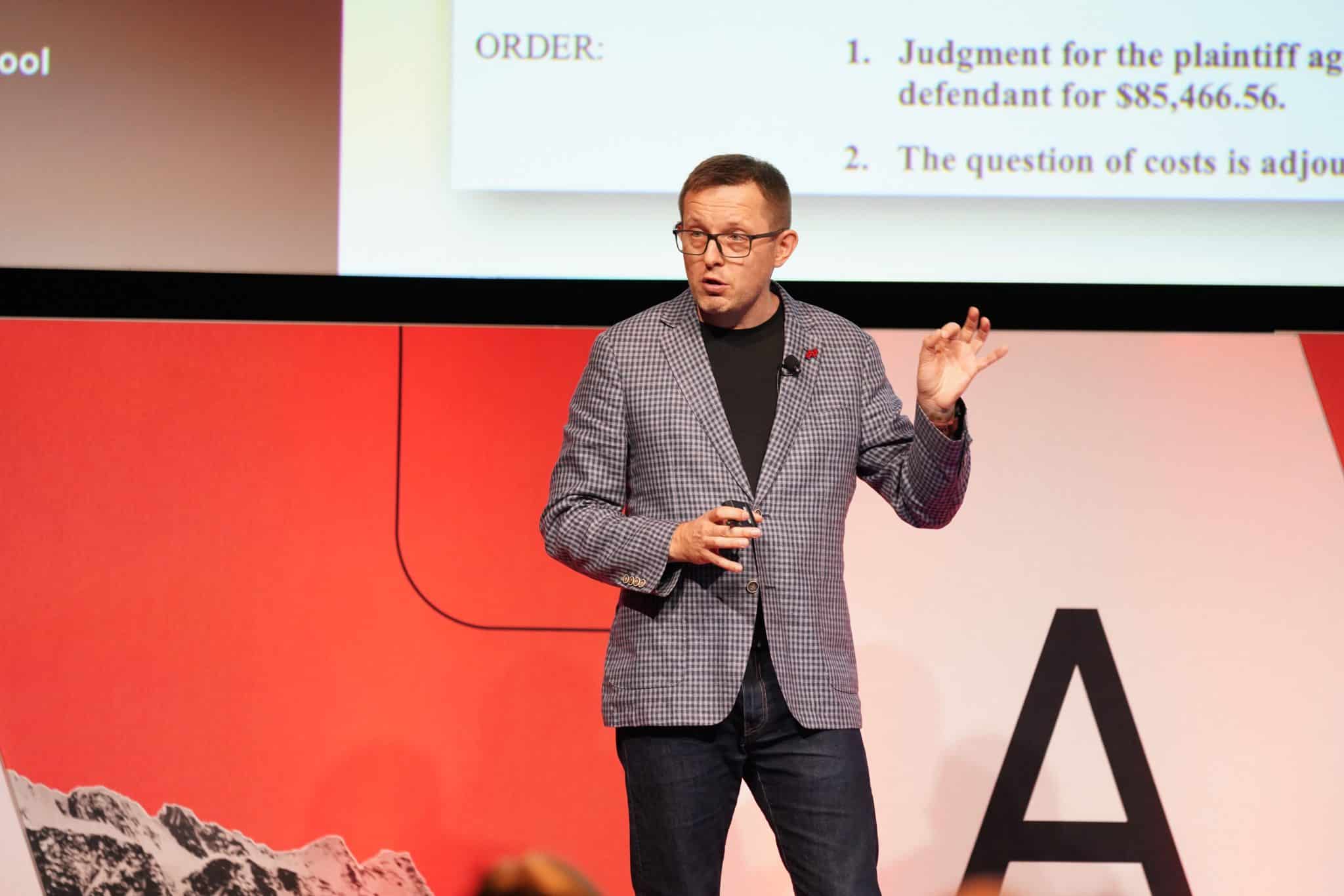
He emphasised that AI is no longer a futuristic concept but an integral part of organisational strategy, reshaping how tasks are automated, resources are allocated, and teams operate.
Prof. Kowalkiewicz discussed real-world examples of AI improving workflow efficiency, optimising financial forecasting, and reducing operational bottlenecks.
However, he cautioned that organisations must address biases in algorithms and prioritise ethical AI use to ensure fair and accurate outcomes.
Prof. Marek urged CFOs to view AI as a tool for augmenting human capabilities, encouraging collaboration between technology and employees to achieve sustainable productivity gains.
By embracing AI responsibly, CFOs can unlock significant opportunities to streamline operations and drive long-term organisational growth.
For vendors, providing scalable AI tools for workflow automation and financial forecasting can empower CFOs to optimise productivity and mitigate operational bottlenecks effectively.
3. How is AI helping Aussie CFOs achieve financial excellence?
Panellists: Jodie Meadows, Former CFO at NRI ANZ, and Shilpa Bhale, Director of Strategy and Product Management at Oracle
Jodie Meadows and Shilpa Bhale highlighted how AI and ERP systems are reshaping finance operations, enabling automation, improved data quality, and predictive analytics.
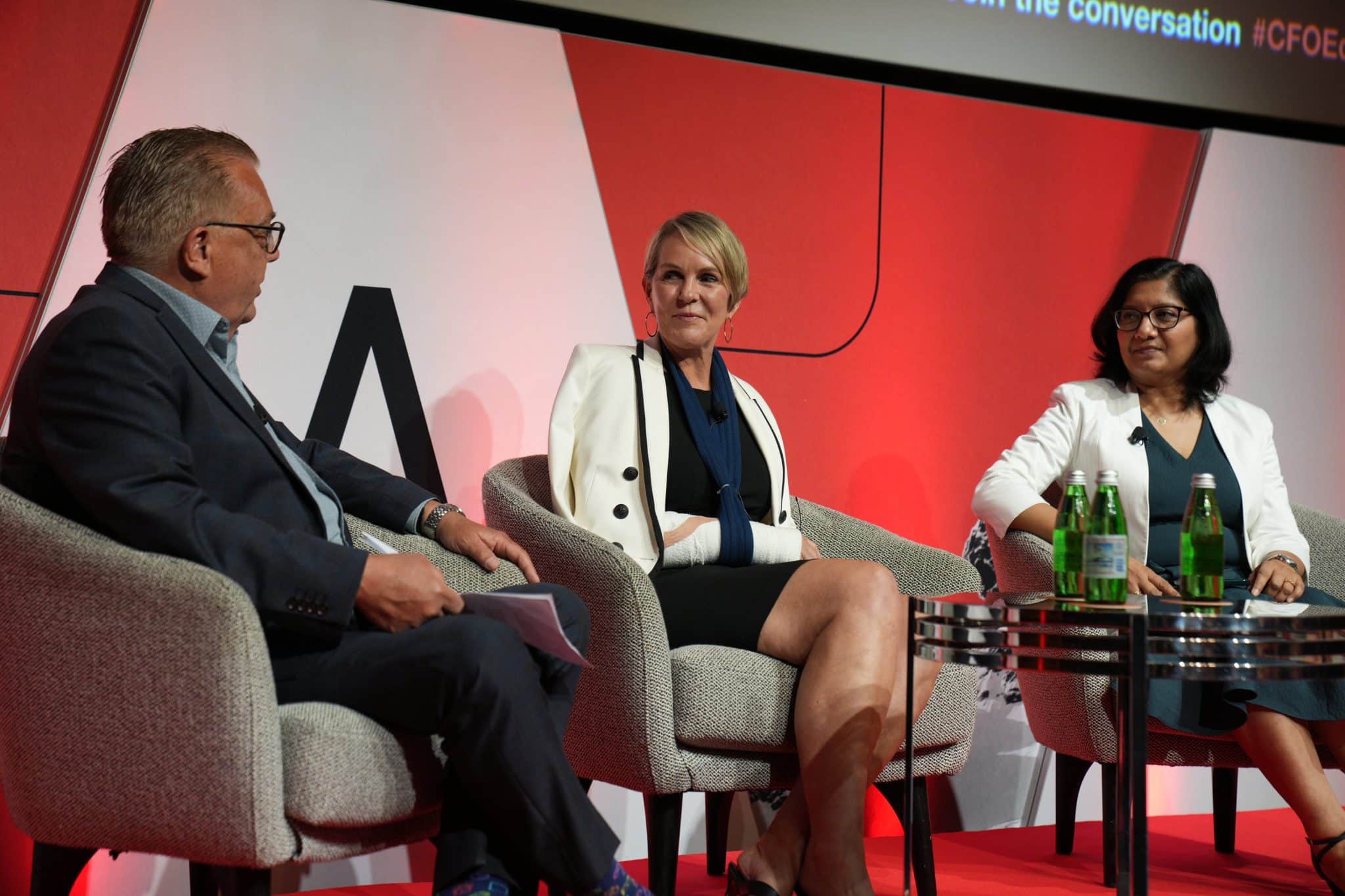
Shilpa shared how Oracle’s ERP Cloud Fusion supports touch-free operations, allowing finance teams to focus on strategic decisions.
Jodie emphasised the CFO’s growing role in balancing innovation with risk, advocating for embedding AI within finance-led systems to simplify implementation and enhance compliance.
Both speakers stressed starting with specific AI use cases to build trust and gain buy-in, while fostering a data-driven culture to drive collaboration and innovation.
This approach empowers finance teams to evolve beyond traditional roles, leveraging AI to align with organisational goals.
Vendors offering AI-embedded ERP platforms can enable finance teams to automate processes, enhance compliance, and integrate innovation into everyday financial operations.
4. The 9 steps: What CFOs must know about data privacy and governance
Presented by: Michelle Dennedy, Chief Data Strategy Officer at ABAXX Technologies
Michelle Dennedy emphasised treating data privacy and protection as strategic assets, comparable to intellectual property, and introduced a nine-step framework for building effective data governance strategies.
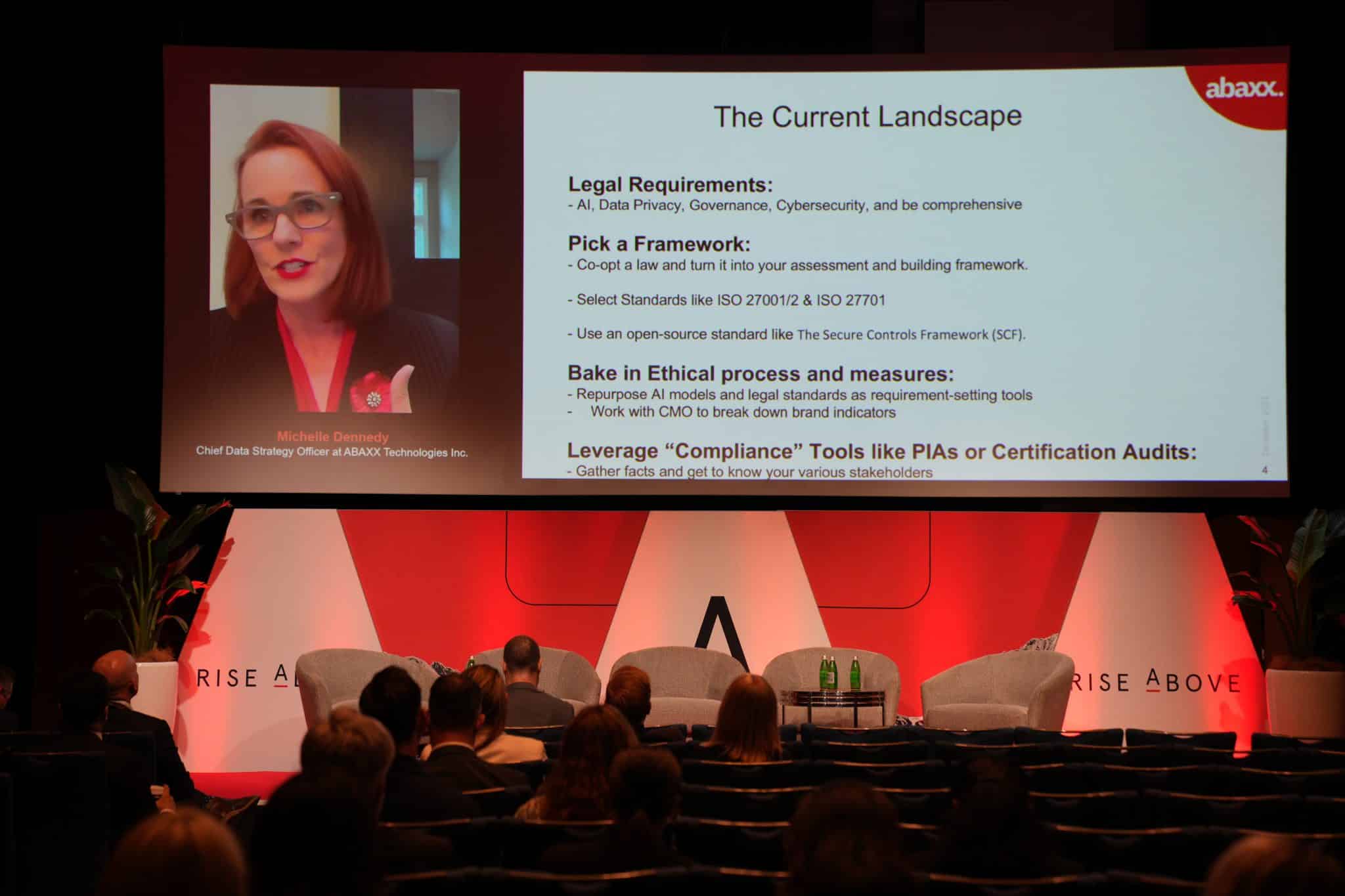
These steps include ensuring legal compliance, fostering a strong data defender culture, and using clear metrics to monitor progress.
She described privacy challenges as a “wicked problem” requiring flexible, ongoing solutions due to evolving regulations and definitions of personal data, especially with AI.
Michelle urged CFOs to assess the ROI of privacy efforts and prioritise data based on business impact, innovation potential, and customer trust.
By aligning privacy and security across teams, organisations can create adaptive frameworks that drive informed decision-making and long-term resilience.
Vendors who deliver integrated data governance solutions with robust privacy and compliance capabilities can position themselves as essential partners in managing evolving regulatory demands.
5. How to unlock true value in ERP transformations
Presented by: Jessica Eyes, Digital Leader at McKinsey & Company
Jessica Eyes highlighted that ERP transformations require collaboration across business, IT, and analytics teams to align systems with organisational goals, rather than treating them as mere IT upgrades.
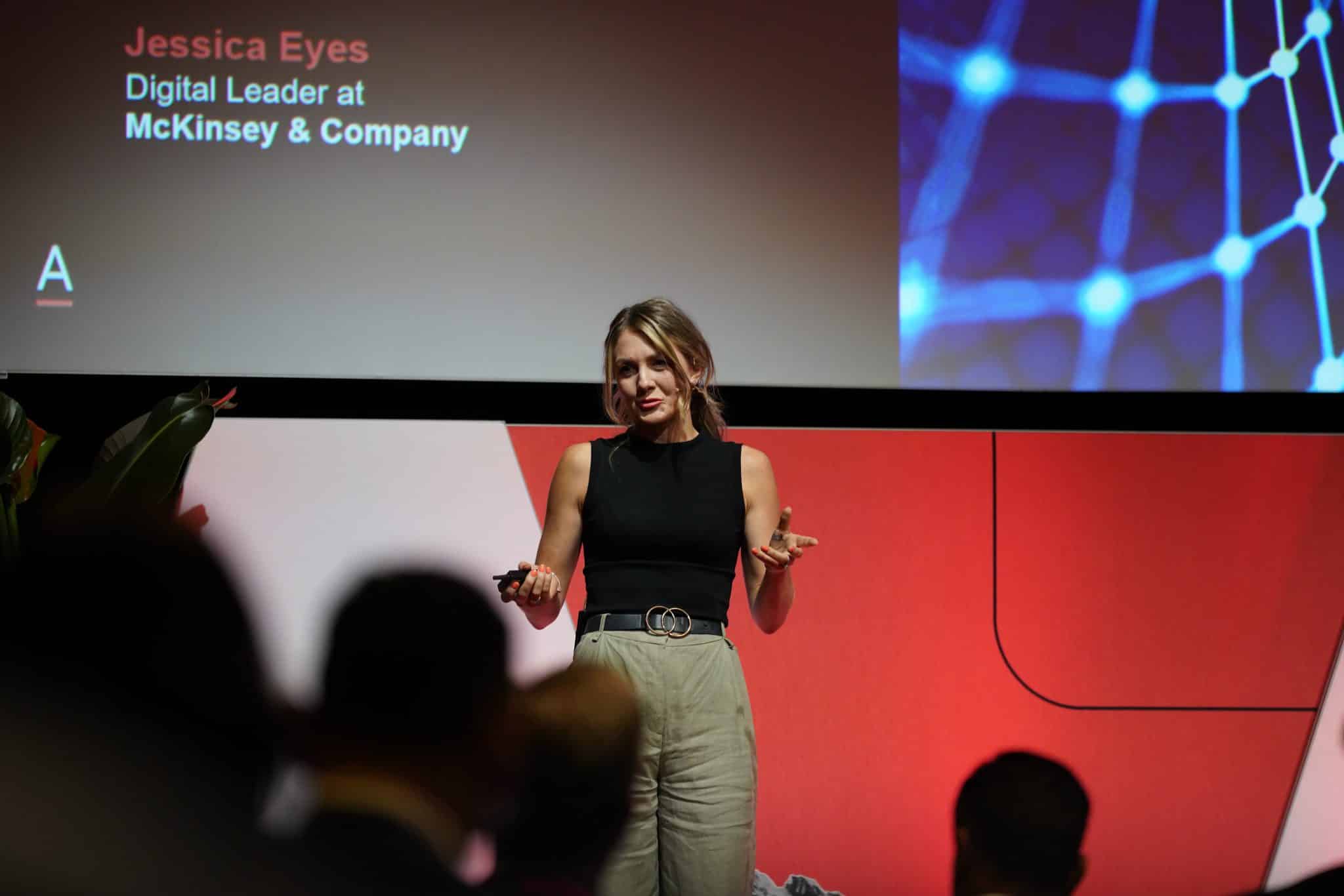
She emphasised the need to streamline processes, prioritise essential data during migrations, and avoid “like-for-like” replacements to maximise value.
Using agile principles can accelerate delivery, improve visibility, and enhance quality by involving users early and testing frequently.
Jessica showcased a case where ERP standardisation led to significant savings and stressed the importance of aligning KPIs and collaborating with vendors and system integrators to ensure cost-effective outcomes.
Moving to cloud or hybrid ERP systems is critical for future-proofing operations and mitigating risks.
For vendors, providing agile ERP implementation frameworks and future-ready cloud solutions presents a critical opportunity to help organisations optimise processes and reduce risks during transformations.
6. AI’s role reshaping accounting for sustainability
Presented by: Dr. Gayan Benedict, CTO at Salesforce, former CIO at RBA
Dr. Gayan Benedict explored the evolving relationship between AI and sustainability, emphasising how efficiency has become a core focus for AI innovation due to environmental and regulatory pressures.
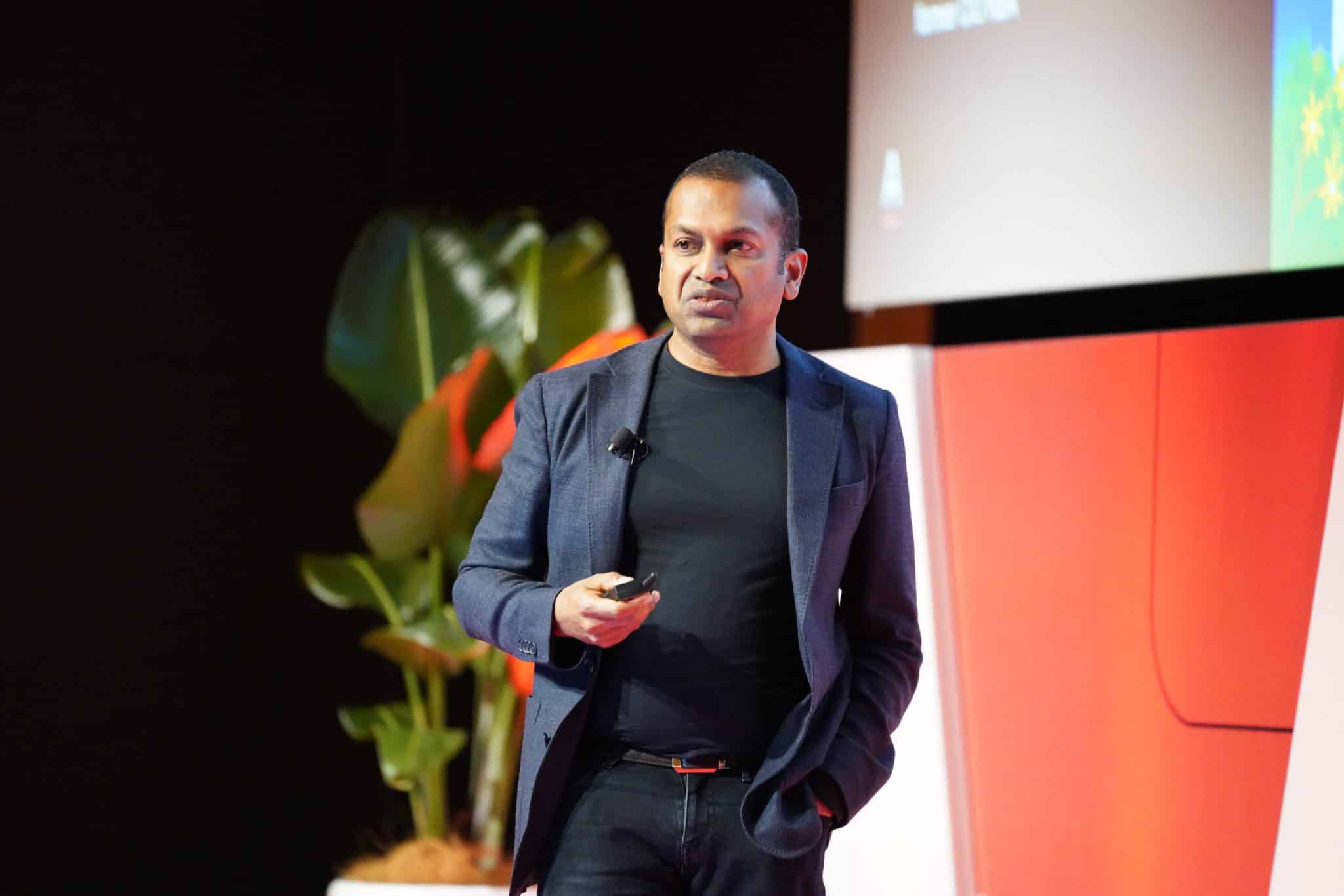
He highlighted the shift from power-intensive computational models to task-specific efficiency, exemplified by Salesforce’s use of compartmentalised AI and training in low-carbon regions.
Companies like Nvidia are advancing AI hardware, achieving up to 67x efficiency improvements in GPUs since 2017, reducing emissions and costs.
Dr. Gayan stressed that sustainability not only aligns with compliance but also drives innovation, enabling organisations to balance operational efficiency with carbon reduction.
This dual approach ensures AI advancements support both environmental goals and financial outcomes.
Vendors who develop energy-efficient AI models and provide tools for low-carbon AI training environments can align with CFOs’ sustainability goals while driving innovation.
7. Australian Red Cross maximises impact through innovation
Presented by: Jean-Baptiste Naudet, CFO at Australian Red Cross
Jean-Baptiste Naudet revealed how the Australian Red Cross leverages diverse revenue streams—including donations, 160 retail shops, and a first aid training business—to sustain its extensive humanitarian services.
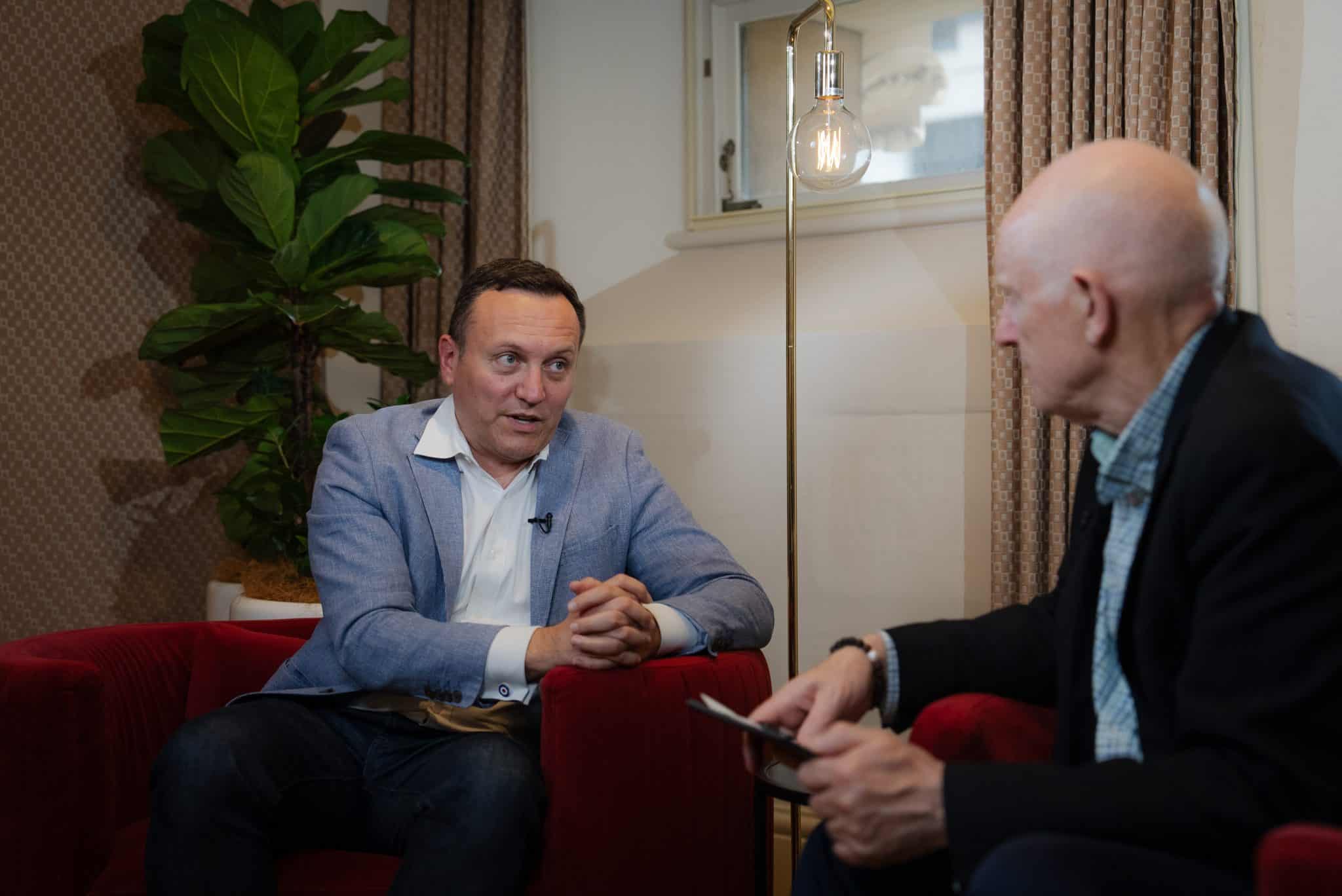
With a focus on emergency relief, community resilience, and innovative programs like the Ready app, the organisation prioritises high-impact initiatives while keeping operational costs low.
Technology plays a pivotal role, with AI verifying claims and preventing fraud to ensure funds reach those in genuine need efficiently.
Digital transformation has enabled scalability during crises, streamlining operations and enhancing donor engagement while allowing volunteers to focus on direct aid.
The Red Cross finance function now drives strategic impact, maximising every dollar to support vulnerable communities effectively.
Vendors offering AI-enabled fraud prevention tools and donor engagement platforms can help non-profits maximise the impact of every dollar while streamlining operations.
8. How the Sydney Opera House balances culture and commerce
Presented by: Jon Blackburn, CFO & Executive Director Corporate Services at Sydney Opera House
Jon Blackburn shared how the Sydney Opera House uses data-driven strategies to adapt post-COVID, aligning revenue generation with cultural impact.
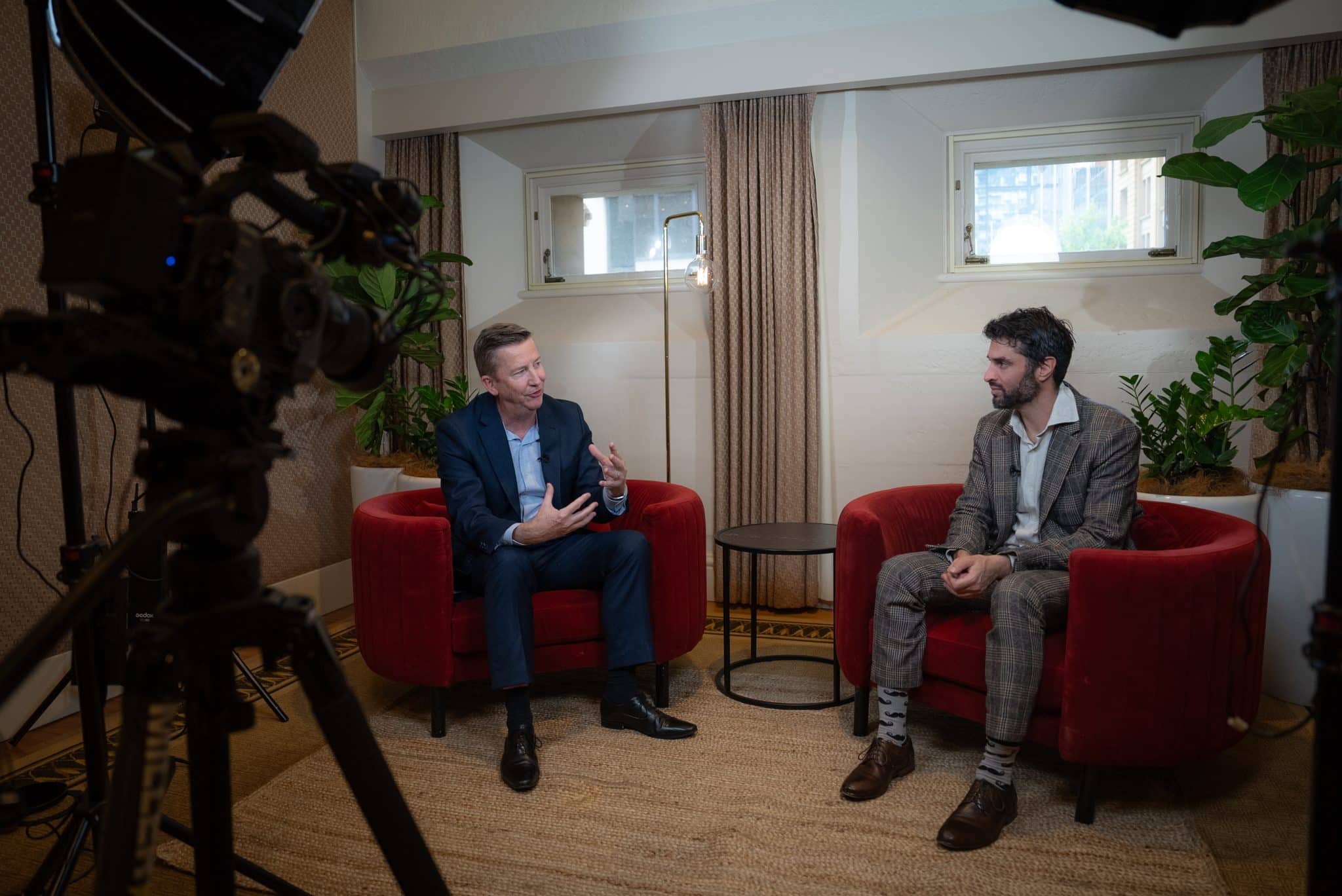
By employing tools like Power BI, the Opera House empowers departments to self-serve analytics, tailoring marketing to changing audience behaviours and boosting ticket sales through personalised recommendations.
Operating under a diversified revenue model that includes food, beverage, tourism, and events, 90% of its income is self-generated, enabling reinvestment into free events, education, and local artist support.
Balancing commercial success with artistic risks, the Opera House manages a fixed-cost structure akin to airlines, where event costs are incurred regardless of attendance.
Collaboration across finance, IT, and marketing ensures strategic investments in customer experience, such as digital features like seat previews and seamless ticketing, enhancing both engagement and operational efficiency.
This circular, community-focused model demonstrates how cultural institutions can achieve financial resilience while maximising community impact.
For vendors, this is an opportunity to deliver customer analytics tools and AI-driven operational platforms that help cultural institutions balance revenue generation with community impact.
Conclusion
CFO Edge showcased the pivotal role of technology in helping financial leaders tackle today’s complex challenges—from enhancing operational efficiency and aligning investments with organisational goals to navigating the evolving landscape of AI and sustainability.
Across industries, finance leaders demonstrated how embracing digital transformation, modernising systems, and fostering collaboration drive impactful outcomes.






















